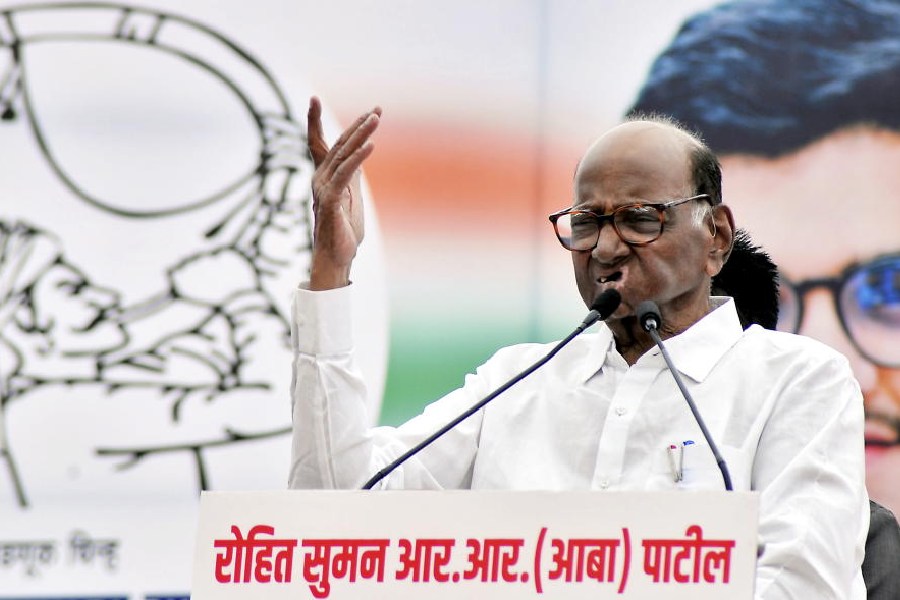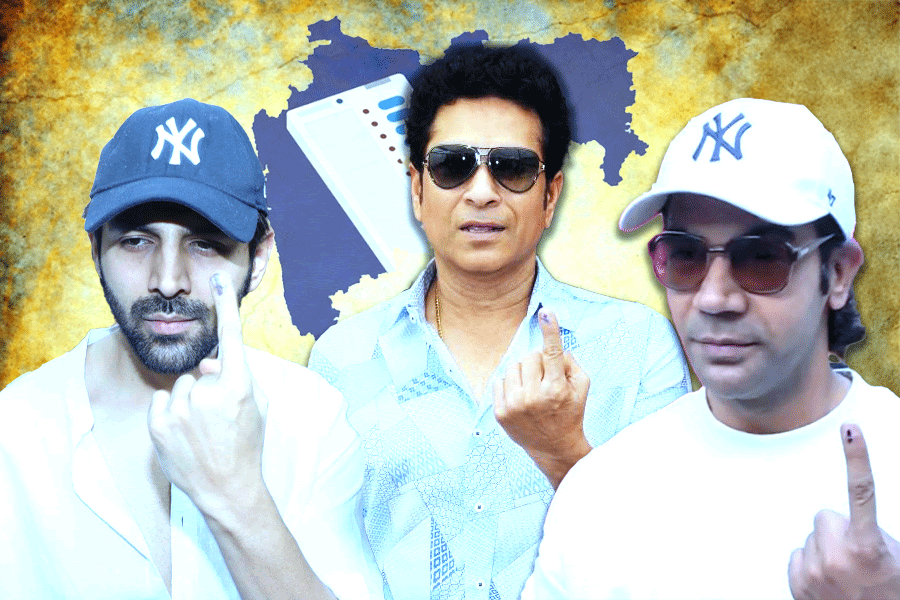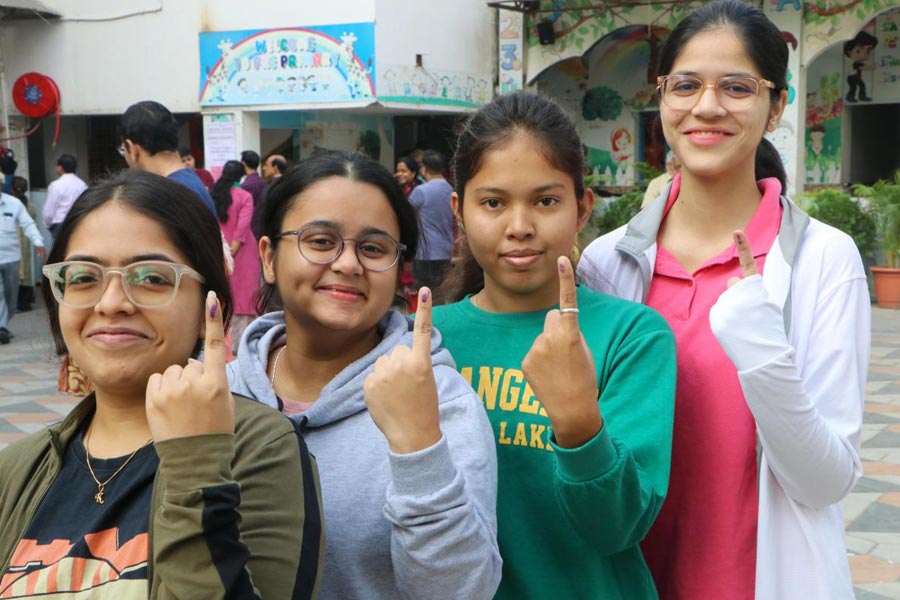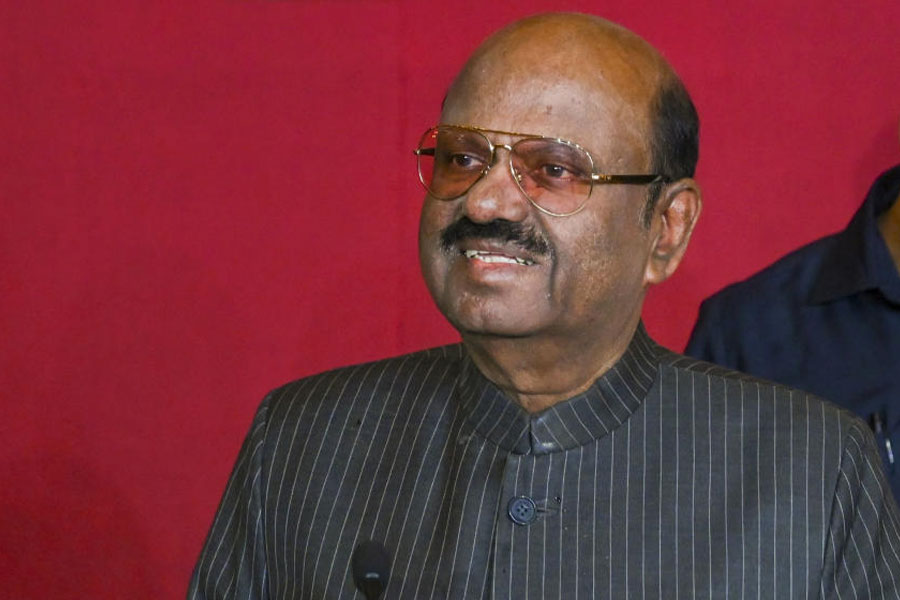Parts of Sujapur, an otherwise nondescript locality off NH34 in Malda district, turned into a battlefield on Wednesday as hundreds of bandh supporters attacked police with bricks and the men in uniform pushed them back by wielding batons.
Hundreds of people had gathered on NH34 at Sujapur in Kaliachak, holding up traffic on the highway, as they tried to enforce the 24-hour nationwide strike called by the central trade unions over a host of issues, including the Citizenship (Amendment) Act, NRC and the NPR.
The protesters began with slogans but gradually the crowd swelled and the leaders lost control when a section of the bandh enforcers rushed to a bus and ransacked it.
“The police tried to deter them and all hell broke loose… Some of the protesters attacked the cops with bricks, which triggered a lathi-charge by the police. The area turned into a battlefield,” said a government official who was witness to the ruckus.
Two policemen got injured and while the cops were trying to disperse the protesters, some of them set two police vehicles on fire.
“The fire spread to some other vehicles. Fire engines reached the spot but the vehicles had been gutted by then,” the official, who had got held up by the roadblock, said.
The police fired teargas shells and additional forces reached the spot. Some bandh supporters accused the police of personnel deliberately damaging the windscreens of vehicles to avenge the attack on them. “The police caused all the trouble with its reckless response. The police are responsible, as are Trinamul goons who have been instigated by Mamata Banerjee,” said CPM MP Mohammed Salim.
Alok Rajoria, the Malda police chief, later visited the spot. Four persons have been arrested.
Other than the Malda incident, the day’s most dramatic scenes played out at Hridaypur station on the Sealdah-Barasat stretch where passengers panicked after spotting three crude bombs on the tracks around 7.15am. A Sealdah-bound train had got stranded at the station as bandh supporters were squatting on the tracks. Government Railway Police removed the bombs, which were defused.
After some time, another bomb was recovered from the railway tracks near Helabattala in Barasat town. Other than these two incidents, the day passed off peacefully and the impact of the shutdown was limited to disruptions in train services in the Sealdah and Howrah divisions of Eastern Railway.
In Santiniketan, the central office of Visva-Bharati University and many other departments remained closed as the bandh supporters did not allow students, teachers, officials and employees to enter the premises.
In Burdwan town, bandh supporters ransacked five buses. When they tried to close down a school, guardians opposed and chased them away.
In Asansol and Durgapur, the strike was partially successful, as was the case in most districts of north Bengal. The industrial belts of the two towns functioned as usual. In the Darjeeling hills, Terai and the Dooars, the bandh did not have any impact on the tea industry.
Anadi Sahu, the state secretary of Citu, claimed that the strike was a “complete success” in Bengal.
In the afternoon, the finance department said the average attendance at government offices was around 95 per cent. A senior official in Nabanna said the attendance was also high in various sectors such as information technology.
“Most of those who did not report for work in government offices were on authorised leave owing to hospitalisation or bereavement in the family,” said an official.
The finance department has asked all departments to furnish final attendance reports at the earliest. Those who did not attend work would be asked to explain the reason.
Additional reporting by Snehamoy Chakraborty in Bolpur, Subhasish Chaudhuri in Nadia and Pranesh Sarkar in Calcutta











